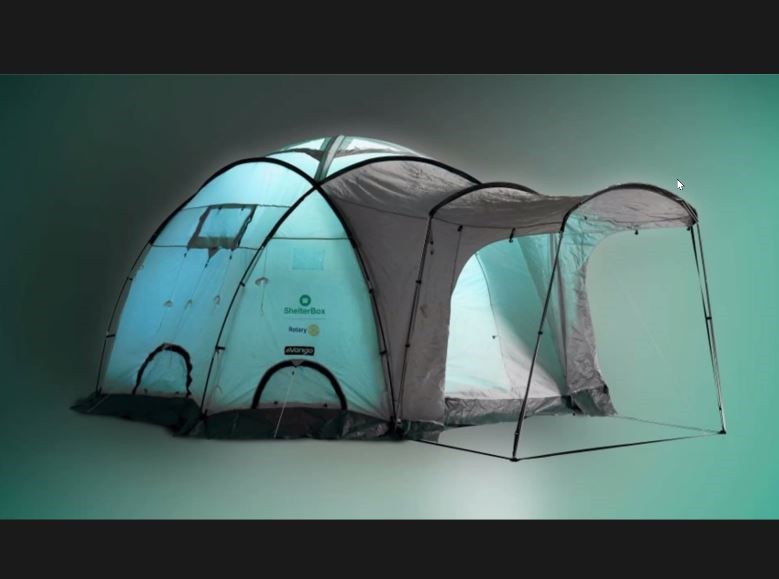
Demand is on the rise internationally for disaster relief and ShelterBox, in partnership with Rotary International, is working hard to provide emergency shelter kits, our club heard in March.
Meg Schmieder, Community Fundraising Coordinator for ShelterBox Canada, told club members the international disaster relief organization provides emergency shelter, essential items, and technical assistance to help some of the world's most vulnerable people after disaster.
About 14 million people are made homeless each year due to disaster, according to the United Nations Office for Disaster Risk Reduction and the Internal Displacement Monitoring Centre.
Meg noted 1 in 5 people have access to the emergency shelter they need.
"We want to make that 5 in 5," she said.
ShelterBox has supported 1.5 million people with emergency shelter across 97 countries. And ShelterBox has had a close relationship with Rotary. Roughly 50 per cent the organization's funding comes from Rotary, and roughly 90 per cent of of local deployment includes Rotarians.
She noted disasters have not stopped during the COVID-19 pandemic. Rather, the international public health crisis had added to the demand for supplies and resources needed for disaster response.
And demand for disaster response, in general, was on the rise too.
When it first launched as an organization, ShelterBox had offered temporary shelters in the form of durable tents, but has since shifted into offering more robust kits that also include solar lights, water filters, household items, blankets, and winterization gear, as needed. Items in the kits are procured from local communities, as able. Both semi-permanent and mobile kit options are available, depending on need. ShelterBox reps also provide people training on how to use the kits. The organization also works with other disaster response organizations to coordinate efforts and reduce duplication of aid.
Sustainability has become an increasing focus for the organization as well, said Meg. For example, lights are now solar powered rather than battery powered, and more carbon filters are provided to extend the life of water filtration equipment.
She added that any financial support is welcome.
"Twenty dollars means one more solar light," she said, as an example. "Which means one more person can travel safely at night."
Our club has a history of supporting ShelterBox disaster response efforts. Most recently, the club donated to fund a kit for disaster response following the 2021 Haiti earthquake.
President Suzanne thanked Meg for her presentation and noted the club would consider additional support in future.